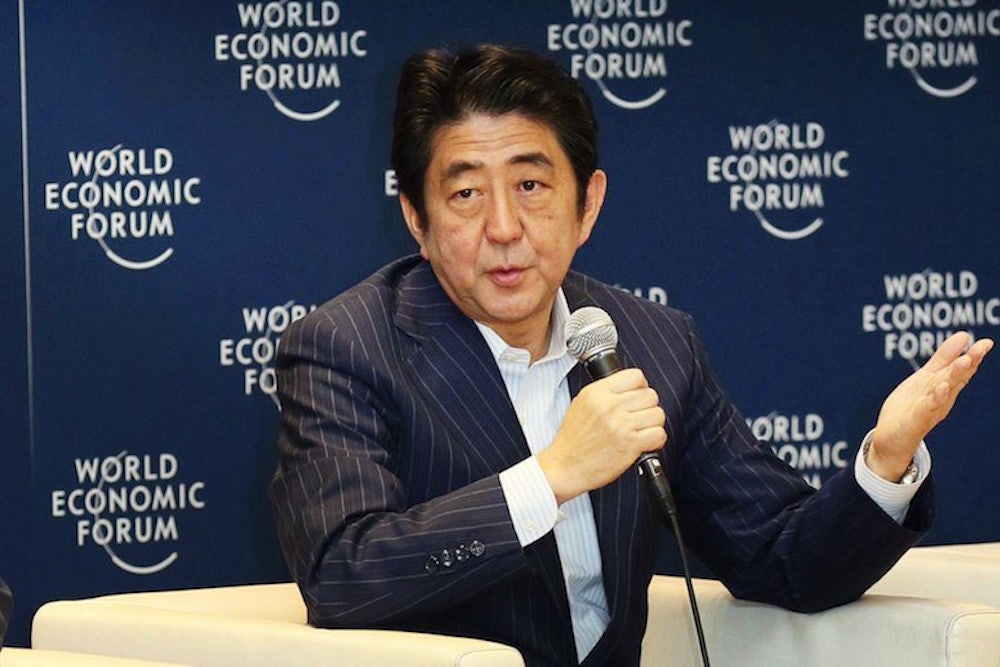When Japan’s new prime minister Shinzo Abe unveiled his economic program last December, it was greeted with skepticism. How could Japan, which had record levels of government debt, hope to improve its economic performance by incurring still higher levels of debt through an ambitious spending program? But so far, Abe’s “three arrows” of fiscal stimulus, monetary easing, and structural reform seems to be hitting their target. In the first quarter of this year, Japan’s economy grew at an annual rate of 4.1 percent. That’s compared to 1.8 percent in the United States.
In a column in today’s New York Times, Columbia University economist Joseph Stiglitz tries to explain what is going on in Japan, and why Abe’s strategy is working. It’s one of the best things I’ve read on Japan’s economics, and has much to say to American politicians and policy-makers. Stiglitz makes three different kinds of observations. First, he explains that Japan’s slowdown of the last two decades, while pronounced in comparison to its past decades, was not as severe as it was portrayed here. During the time Japan’s GDP was growing more slowly than that of the U.S., its population was shrinking. If you look at GDP per capita, Japan’s performance in the 2000s exceeds that of the US and Germany.
Second, Stiglitz observes that Japan’s slowdown did not bring the same kind of unemployment and income equality that occurred in the U.S. Japan’s unemployment rate never reached six percent. That’s the result of government tax and social policies. And Abe has argued that raising workers’ wages is essential to prosperity. Finally, Stiglitz observes, as many commentators now acknowledge, that Abe’s fiscal stimulus and monetary policies have had their desired effect. Japan’s success rebuts the “deficit hawks” in the United States who urge that cutting spending and slowing monetary growth is the path to prosperity. As the experience of Japan shows, “austerity breeds austerity,” and not growth.
